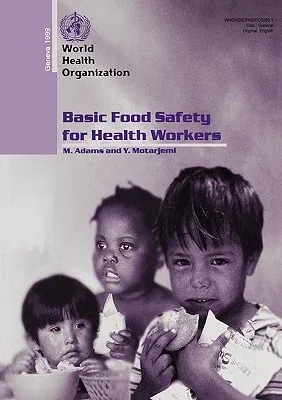A practical guide to basic principles and practices aimed at reducing
the incidence of foodborne illness at both family and community levels.
Addressed to health workers and their trainers, the book responds to the
magnitude of health problems caused by foodborne illness, particularly
in young children, the elderly, and other vulnerable groups. Although
all components of food safety are covered, particular emphasis is placed
on the hazards posed by the presence of pathogenic microorganisms in
food.
The book has seven chapters. The first introduces the problem of
foodborne illness, discusses its health and economic consequences, and
explains the concepts of infection intoxication and infectious dose.
Chapter two focuses on foodborne hazards, gives a detailed account of
the many biological, chemical, and physical hazards that can compromise
food safety. Against this background, chapter three explains the
processes of microbial contamination, growth, and survival as the main
causes of outbreaks of foodborne illness. Particular attention is given
to factors such as hygiene, temperature, time, nutrient and oxygen
requirements, storage, and packaging that carry lessons relevant to safe
food preparation and processing. Hazards associated with different foods
are considered in the next chapter, which provides a guide to the risks
posed by meat and poultry, eggs, milk and dairy products, fish and
shellfish, fruits and vegetables, cereals, and bottled waters. Chapter
five considers both traditional and modern industrial technologies that
can prevent contamination, control microbial growth or remove or kill
microorganisms in food. The remaining chapters outline the principles of
good hygiene in family food preparation and mass catering, and discuss
what health workers can do to alleviate the problem of foodborne
illness, particularly in young children. The book concludes with an
extensive table setting out basic facts about the epidemiology of over
30 foodborne illnesses.

